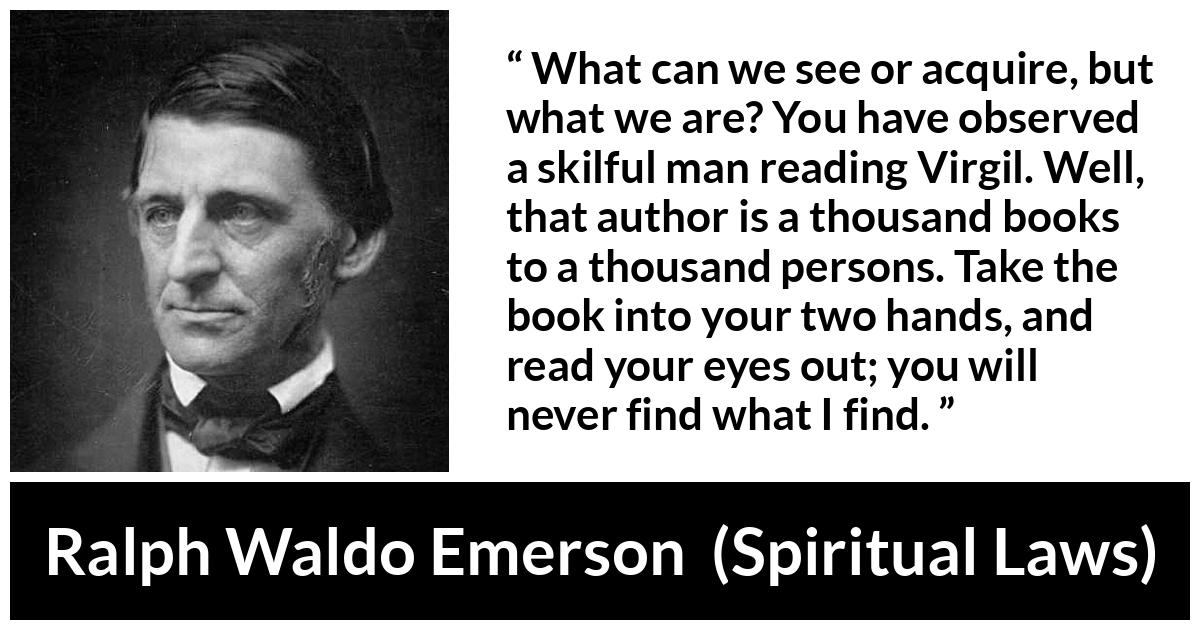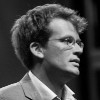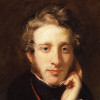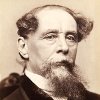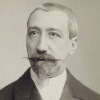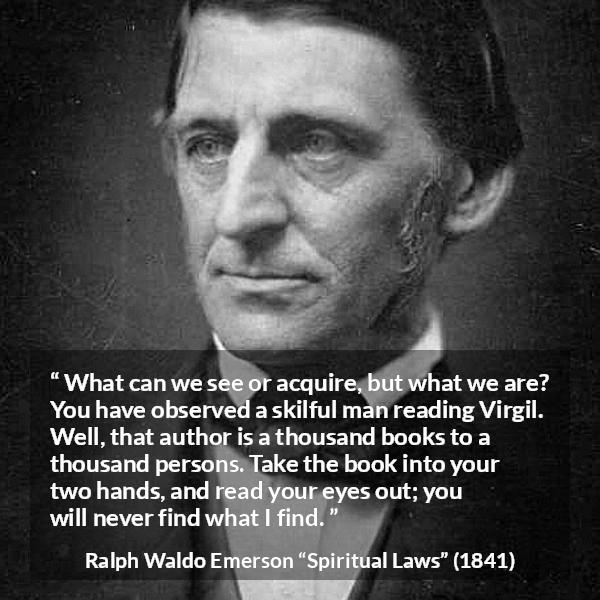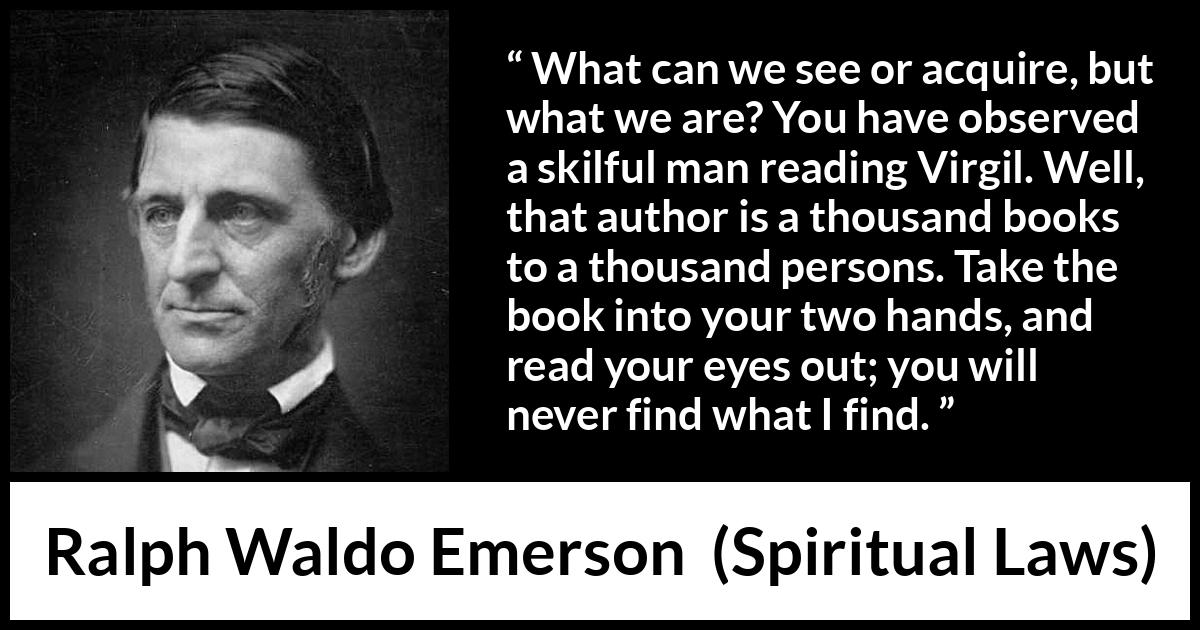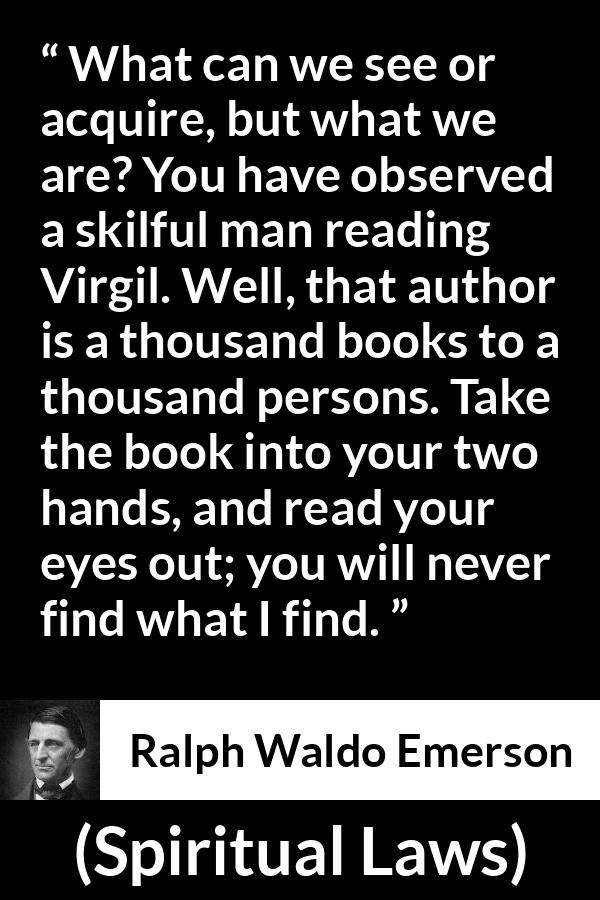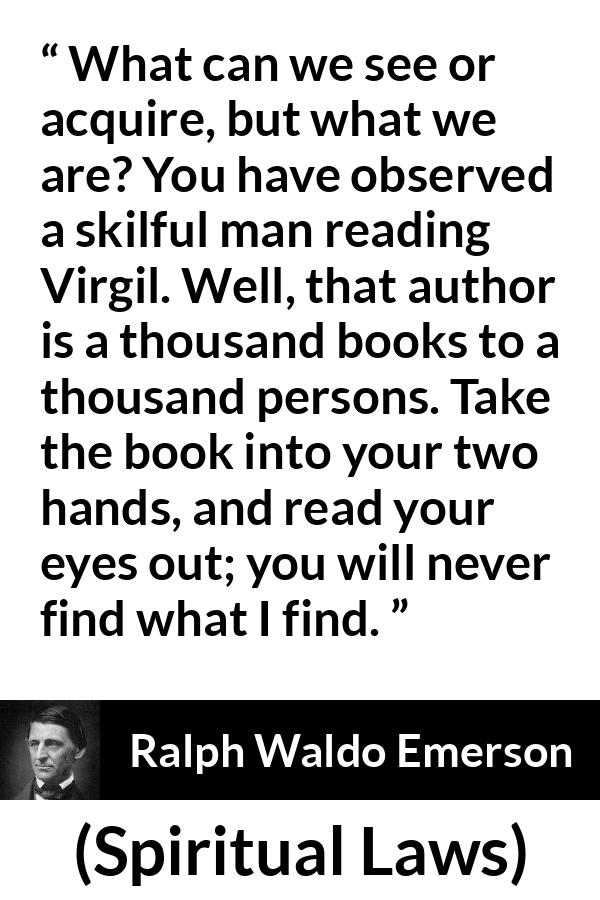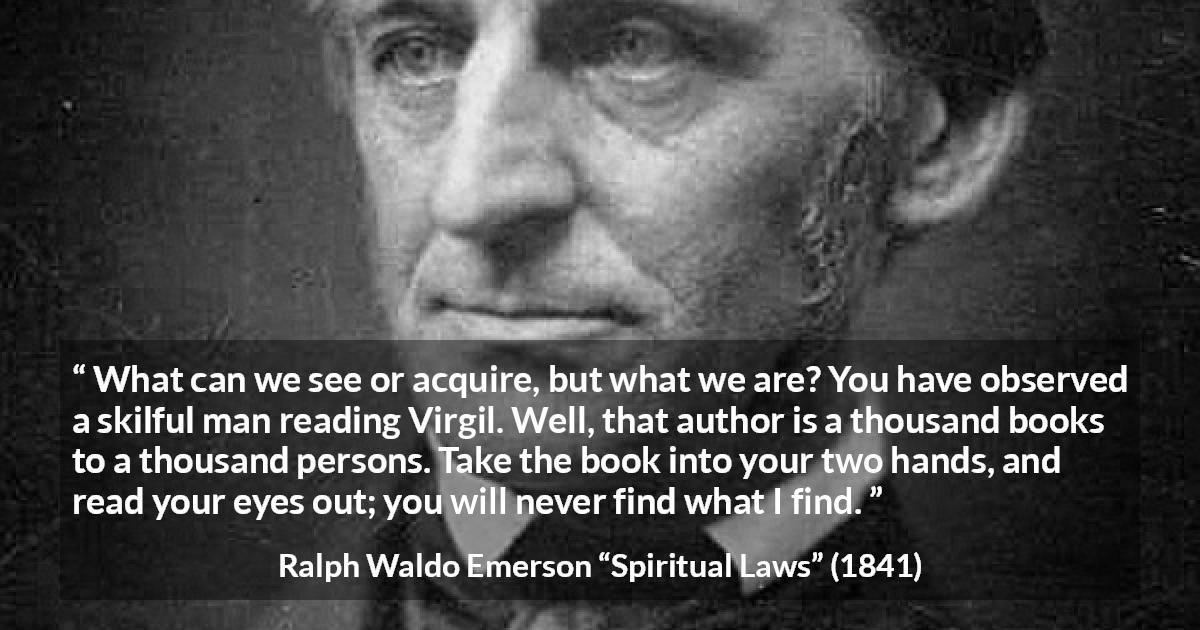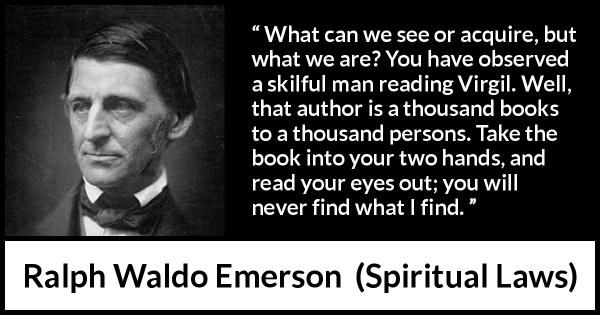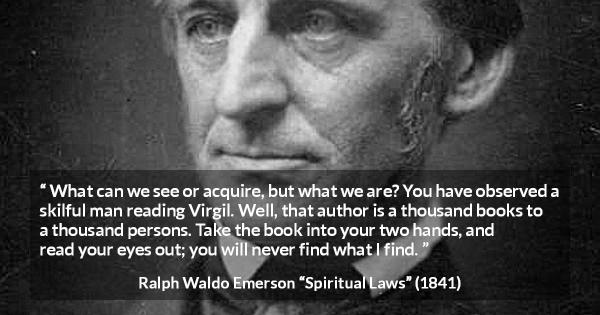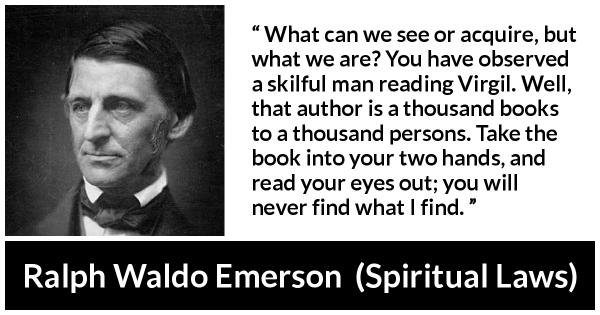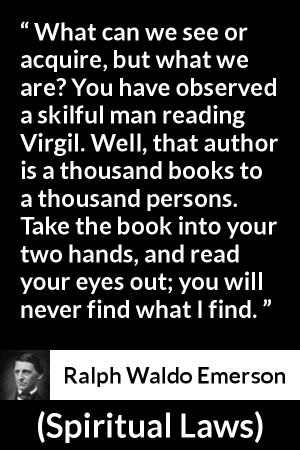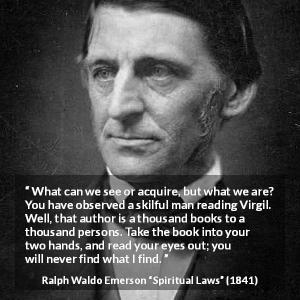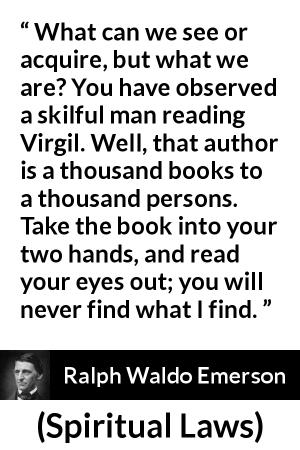“ What can we see or acquire, but what we are? You have observed a skilful man reading Virgil. Well, that author is a thousand books to a thousand persons. Take the book into your two hands, and read your eyes out; you will never find what I find. ”
Ralph Waldo Emerson, Spiritual Laws (1841). copy citation
| Author | Ralph Waldo Emerson |
|---|---|
| Source | Spiritual Laws |
| Topic | reading books self |
| Date | 1841 |
| Language | English |
| Reference | in "Essays: First Series" |
| Note | |
| Weblink | https://en.wikisource.org/wiki/Essays:_First_Series/Spiritual_Laws |
Context
“He cleaves to one person, and avoids another, according to their likeness or unlikeness to himself, truly seeking himself in his associates, and moreover in his trade, and habits, and gestures, and meats, and drinks; and comes at last to be faithfully represented by every view you take of his circumstances.
He may read what he writes. What can we see or acquire, but what we are? You have observed a skilful man reading Virgil. Well, that author is a thousand books to a thousand persons. Take the book into your two hands, and read your eyes out; you will never find what I find. If any ingenious reader would have a monopoly of the wisdom or delight he gets, he is as secure now the book is Englished, as if it were imprisoned in the Pelews' tongue. It is with a good book as it is with good company.” source
He may read what he writes. What can we see or acquire, but what we are? You have observed a skilful man reading Virgil. Well, that author is a thousand books to a thousand persons. Take the book into your two hands, and read your eyes out; you will never find what I find. If any ingenious reader would have a monopoly of the wisdom or delight he gets, he is as secure now the book is Englished, as if it were imprisoned in the Pelews' tongue. It is with a good book as it is with good company.” source
